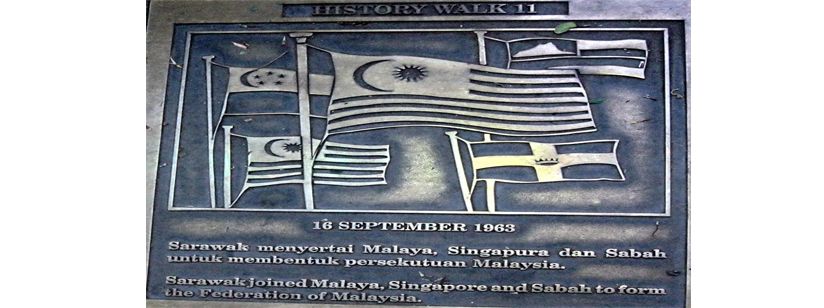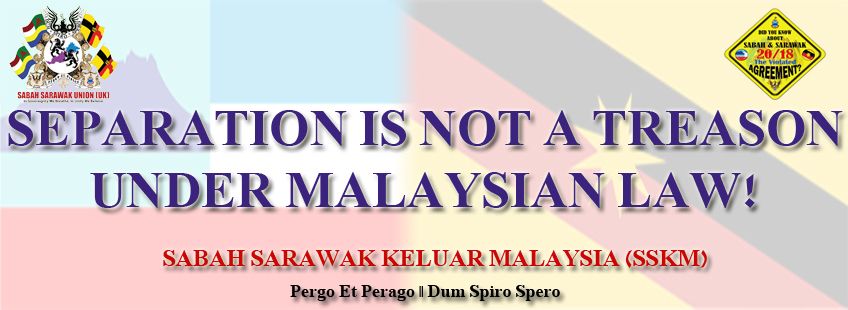Friday, 20 March 2015
Borneo rights talk not ‘threat’ to Federation
It could mean that demands are being made because there was something lacking in the process of implementing promises.
KOTA KINABALU: The view from academia in Borneo is that any discussion on the rights issue should not be viewed by the Federal Government as a security threat to the Federation. These discussions have been hogging the limelight in the media, social media and public forums especially since 2013, the 50th year since the word Malaysia was officially used to include the Sabah and Sarawak parts of Borneo as well.
Any discussion on these rights, said Universiti Malaysia Sabah (UMS) Professor Dr. Kamarulzaman Askandar, is within the context of the circumstances surrounding 1963 when Sabah, along with Sarawak and Singapore found itself in a Federation with the peninsula. “It should not be viewed by the Federal Government as a security threat,” reiterated Kamarulzaman who heads the International relations Programme at UMS. “It’s not a security issue but rather we need to work on finding what it is that caused for such demands (within the context of the rights issues) to arise and why.”
He was elaborating on his academic paper presented on the topic, “Conflicts, Peace and Nation Building” at the Nation Building Seminar at the YTL Auditorium, UMS, on Wednesday.
“When trying to diagnose an illness, for instance, the key was to inspect internally rather than to simply rely on surface analysis,” said Kamarulzaman.”
Hence, he added, rather than consuming efforts on searching for and apprehending individuals promoting secession, more efforts should instead be put into understanding the core areas on which such demands were built. “The people involved in the secession issue based their movement on points such as where Sabah and Sarawak stood at the time of Malaysia’s formation, division of power, distribution of development priorities, and so on,” he pointed out.
The concept of nation in this country, he conceded, was still vague. “But never be afraid of variety because that is where our strength instead of weakness lies, so long as we find the proper balance.”
Earlier, in answering questions from the floor during the question and answer session after his talk, on whether the demands made by Sabah were reasonable, Kamarulzaman said: “There’s a need to determine whether or not the demands are reasonable.”
“When there are things formally promised through an agreement, like the 20-Point Agreement in Sabah’s case, for example, it could mean that demands are being made because there was something lacking in the process of implementing promises,” said the don. “I think it’s reasonable to expect consistent supply of electricity for instance, or for roads to be in good condition, for remote villages to get the basic necessities, or for all children to get quality education.”
Finding the right balance is the answer, said Kamarulzaman, in finding solutions for peace among all communities in Malaysia. “If there’s imbalance in priorities and a certain group gets a bigger slice of the cake, dissatisfaction is bound to surface.”
And in the context where a certain group of people receive more benefits and more opportunities than the rest, he cautioned, there will come a time when the oppressed – those who are not getting what they want and need, or simply not getting what they were promised – will revolt or at least voice their cry for their rights and values to be upheld.
Friday, March 20, 2015
Nationalist
,
News
,
Sabah
,
Sabah Sarawak Union (SSU)
,
Sarawak
,
SSKM
No comments
Secession group says willing to go to jail to uphold Sabah rights
KOTA KINABALU, March 20 ― Frustrated and tired of being denied rights in their own land, the four volunteers of the outlawed Sabah Sarawak Keluar Malaysia (SSKM) movement now say they are willing to go to jail in order for their views to be heard.
Jemmy Liku Markus Ratu, 32, Erick Jack William, 28, Joseph Kolis, 29 and Azrie Situ, 24, were charged last week under the Sedition Act for being in possession of pamphlets allegedly propagating Sabah’s secession from the federation.
“If fighting for our rights will land us in jail, then so be it. We have to do what it takes to be heard. This is the sacrifices we have to make for the cause we believe in,” said Azrie, the youngest of the four.
“People get the wrong impression that we are pushing for secession, because of the Facebook group name (SSKM, or Sabah Sarawak Keluar Malaysia), but it is just a name to attract attention.
“What we are really aiming to do is to spread awareness of the formation of Malaysia and the breach of the Malaysia Agreement 1963,” Erick told Malay Mail Online.
According to Erick, all SSKM wants to is a thorough review of the agreement, and whether its conditions were being adhered to.
“How is expressing ourselves and fighting for our rights seditious?” he asked.
Despite facing the possibility of being thrown in jail for a maximum of 18 months or a fine of RM2,000 or both, the four remain committed to SSKM’s goals.
Jemmy, a half-Kadazan, half-Timorese said that they knew the risks getting into the movement, which they claimed were under a UK-based NGO, Sabah-Sarawak Union, founded by Doris Jones, the woman wanted by police here for allegedly masterminding the SSKM movement online.
“Someone has to do it, and we are tired of relying on our leaders who do not seem to understand what we are going through, and the struggles we face,” he said.
The litany of grievances cited by the four are not new ― land grabs, the influx of illegal immigrants, comparative lack of infrastructure and development, distortion of historical facts regarding Malaysia’s formation as well as oil royalty rights.
According to them, the SSKM movement on Facebook has attracted like-minded Sabahans of all races and religions and age groups.
The SSKM group page itself has garnered over 32,000 “Likes” while more supporters “follow” their leader Doris Jones’s profile for motivation and support.
“Everyone does things on their own willing. During the recent incident in Tuaran, there were many of us, up to 50, and everyone came on their own.
“We didn’t even know who else was part of the group,” said Azrie, adding that the bail amount of RM10,000 each for court was raised entirely from volunteer’s donations.
The four were also part of the “Tuaran 9” who were arrested for allegedly possessing seditious pamphlets last February in the Tuaran tamu grounds.
Their lawyer, Tengku Fuad Ahmad, said that the four were clearly very dedicated to their cause and were ready to go to jail for it.
“I have never met such people who are so very sincerely committed to the issue of Sabah's rights within Malaysia.
“My duty is strictly limited to defending them but one cannot help but respect the four because at heart they are idealists; persons committed to the protection and promotion of Sabah rights,” he said when contacted by Malay Mail Online.
All four had pleaded not guilty to the charge under Section 4 (2) of the Sedition Act 1948. The hearing is on May 18 to 22.



























































